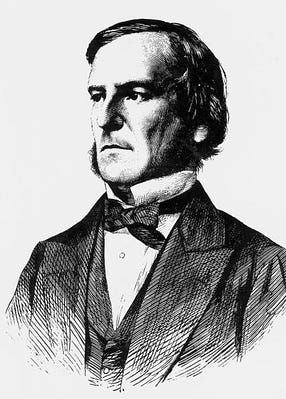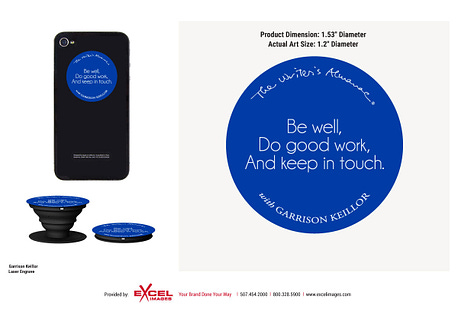|
 |
The Writer's Almanac from Thursday, November 2, 2017
“Peace” by C.K. Williams from Collected Poems. © Farrar, Straus and Giroux, 2006.
ORIGINAL TEXT AND AUDIO - 2017
Today is the 100th anniversary of Britain’s Balfour Declaration, which proclaimed its support for a Jewish state in Palestine (1917). The declaration took the form of a brief letter from foreign secretary Lord Arthur Balfour to Baron Lionel Walter Rothschild, a prominent British Zionist. Balfour wrote a “declaration of sympathy” with the Zionist cause, adding: “His Majesty’s Government views with favour the establishment in Palestine of a national home for the Jewish people, and will use their best endeavours to facilitate the achievement of this object, it being clearly understood that nothing shall be done which may prejudice the civil and religious rights of existing non-Jewish communities in Palestine, or the rights and political status enjoyed by Jews in any other country.” The British government believed the cause was just; they also hoped to gain Jewish support for the Allies in World War I.
Arab leaders felt betrayed by the Balfour Declaration, since they had supported the Allies against Turkey in World War I and had been guaranteed complete autonomy in the region in return. The declaration’s vague wording also made it unclear what exactly Britain was offering to do. The government later clarified that the intent of the declaration was to support a “homeland” for Jews, where they would live side by side with the indigenous Palestinians. They did not intend to advocate for a formal Jewish state. After the declaration, Jews migrated to Palestine in large numbers, and the Jewish population grew from 50,000 in 1917 to 600,000 in 1947. The state of Israel was established in 1948.
Earlier this year, the British government acknowledged that the Balfour Declaration should have explicitly protected the political rights of indigenous Palestinians, as well as their civil and religious rights.
On this day in 1920, the KDKA radio station in Pittsburgh, Pennsylvania, sent out the first-ever regular radio broadcast in the United States. According to the jargon of the day, the Harding-Cox presidential election results were sent out “over the ether.” At the time, only 5,000 Americans owned radios. In its early days, no one could imagine how radio might be lucrative. As media moguls began to get creative, a mad grab began for control of the airwaves.
Some wanted radio to be a public good, used for education and enrichment, and funded by the government. These early proponents of public radio didn’t get their wish until 1967, when Lyndon B. Johnson signed a law that created NPR. Commercial radio won out initially, when, in 1922, the New York station WEAF (later known as WNBC) began selling on-air advertising.
While companies were initially skeptical, radio advertising soon proved wildly effective. This was the first time in history when advertising could enter private places without being deliberately carried inside, such as in the pages of a newspaper. A listener might tune in to hear the first broadcast of a baseball game, for example — also compliments of KDKA, in 1921 — and would have no way of evading advertisements, short of switching off the dial.
The result was a totally new relationship between the American public and consumption. Suddenly, private life was punctuated with reminders about product options, and the ability to purchase more and better goods increasingly defined American success. Commercial broadcasting successfully linked status, self-worth, and identity with shopping.
Radio changed culture in many additional ways, from the introduction of instantaneous news, to providing a platform for politicians, to shaping the way Americans thought about important current events, such as World War II, the first major war in the era of broadcasting. Radio also paved the way for other media. Once Americans grew accustomed to the voices of radio advertisers in the home, it was easy to invite television, and then internet ad banners, into the family.
In 1906, the American inventor Lee de Forest created an amplifier that made broadcasting possible. Of commercial radio, de Forest said: “What have you done with my child? You have sent him out on the street in rags of ragtime to collect money from all and sundry. You have made of him a laughingstock of intelligence, surely a stench in the nostrils of the gods of the ionosphere.”
Broadcasting has expanded American thinking and reminded listeners and viewers of our potential outside of the mall. Yet we can trace our modern shopping habits all the way back to that first Pittsburgh broadcast, 97 years ago today.
Today is the birthday of the poet C.K. Williams, born in Newark, New Jersey (1936). He studied at the University of Pennsylvania and was a therapist for teenagers before beginning his teaching career. He said that his work in therapy helped him realize “that you didn’t have to be afraid of anything that the mind does. Even though you can be thunderstruck at it, at its absurdity and sometimes obscenity, there really wasn’t anything to be afraid of.”
His first book of poems, A Day for Anne Frank, came out in 1968, and 32 years later, he won the Pulitzer with his collection Repair (2000). He published over 20 books of poems, a memoir, two children’s books, and several books of essays. Williams also translated plays by Sophocles and Euripides, and more modern poetry from Polish and French.
In his book On Whitman, Williams wrote about his personal experience reading Leaves of Grass. The two poets are often compared to each other because of their long, sweeping lines. Williams said that if he had to recommend one poet to read, he would say Whitman because “Once you read him, you just knew that poetry had to be something other than what you thought it had been.”
C.K. Williams died at 78 in 2015. Toward the end of his life, he said: “I don’t have to spend so much time mastering my craft, because I pretty much have that under control. But it’s still hard to find the right inspiration and the right voice and the right music to embody the inspiration. That’s the primary business of the poet: to bring the matter and the music together. The best poetry, when you’re reading it, you hear two voices simultaneously — the voice of the poet and your own voice.”
Today is the birthday of George Boole (1815), the English mathematician responsible for Boolean algebra, whose three basic operations of AND, OR and NOT, became the basis of comparing sets of things mathematically. He also composed all-important algebraic identities like: (X or Y) = (Y or X); not (not X) = X; not (X and Y) = (not X) or (not Y), which became the stuff of nightmares for many teenagers. He did all of this without a university degree, or even a particularly sturdy early education. In fact, it was his father, a tradesman, who first began teaching Boole mathematics and even taught him to make optical instruments. Without Boolean algebra, we wouldn’t have the design for basic digital computer circuits or telephone switching, the system of interconnected circuits that allows us to call each other.
George Boole was born in Lincolnshire, England. He was a precocious learner, poring over mathematics journals and Newton’s Principia. A tutor taught him Latin, and then he taught himself Greek, becoming so well versed that at 14, he published a translation of a poem by Meleager. The work was so good that a local schoolmaster declared it a fake, claiming a young person never could have done such fine work. By the time he was 19, he’d founded his own school. He later married Mary Everest, the niece of Sir George Everest, for whom the mountain is named.
Boole’s legacy lives on not only in everyday mathematics but also on the moon: the Boole crater is named for him. The keyword Bool is also a Boolean data type in programming languages, and there’s even a road called Boole Heights in Bracknell, Berkshire.
When George Boole embarked on the writing of his book An investigation into the Laws of Thought, on Which are founded the Mathematical Theories of Logic and Probabilities (1854), he wrote to a friend: “I am now about to set seriously to work upon preparing for the press an account of my theory of Logic and Probabilities which in its present state I look upon as the most valuable if not the only valuable contribution that I have made or am likely to make to Science and the thing by which I would desire if at all to be remembered hereafter.”
Be well, do good work, and keep in touch.®
Attach this Writer's Almanac Pop Socket onto the back of your phone to remind you to "keep in touch" with the show daily by checking your podcast app!
If you are a paid subscriber to The Writer's Almanac with Garrison Keillor, thank you! Your financial support is used to maintain these newsletters, websites, and archive. If you’re not yet a paid subscriber and would like to become one, support can be made through our garrisonkeillor.com store, by check to Prairie Home Productions, P.O. Box 2090, Minneapolis, MN 55402, or by clicking the SUBSCRIBE button. This financial support is not tax deductible.


